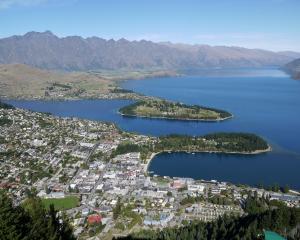
The Crown agency manages 14 state houses in the Queenstown Lakes district, including nine in Queenstown.
In June, it sold the 10th, a two-bedroom Queenstown property, at auction for $665,500.
An internal memo justifying the sale, released under the Official Information Act, showed that was part of a plan to remove all state housing in the resort.
That was based on a ``negligible'' waiting list of people identified by the Ministry of Social Development (MSD) as needing social housing in Queenstown.
At the time, there were no people registered for housing assistance in the district, nor had there been any registrations since 2014 when the MSD took over managing the register.
However, as of September nine households were on the waiting list for accommodation in the district.
An HNZ spokeswoman said all properties it managed in the district were tenanted.
``While there is a demand on the social housing register in Queenstown we will not be selling any properties.''
That was music to the ears of Happiness House co-ordinator Niki Mason, who has been working with families in need since the plans to sell off the Wakatipu's state housing stock were revealed.
Many, Ms Mason said, were not aware applying for social housing assistance was even an option.
Happiness House had researched how many potentially met the criteria.
It had then worked with the Queenstown Lakes Community Housing Trust to let people know, and supported families through the application process.
``So, we've managed to ... lift the housing registration numbers a great deal and we've assisted people in doing that.
``It's great. I'm overwhelmed,'' Ms Mason said.
MSD social housing associate deputy chief executive Kay Read said to qualify for assistance households had to meet several criteria and complete a detailed questionnaire with Work and Income. This contributed to their overall priority rating, measuring how ``at risk'' a person was of not being able to find appropriate housing
in the market.
Factors taken into consideration included whether a household or individual could afford to live in a private rental and how accessible private accommodation was.
To be eligible for social housing someone must be assessed as having a priority A (at risk) or B (serious priority).
MSD could not provide details of how many of the nine on the waiting list in Queenstown were priority A or B, or how many people the nine households represented.
Ms Read said figures of five or less were suppressed to protect privacy. Becauseboth of figures were suppressed on the table, it could be interpreted that there were fewer than six households in each category.
The ministry could also not provide a breakdown of how many households were waiting for accommodation in Queenstown versus Wanaka, but said all had registered between July and September.
Ms Mason said while HNZ's decision not to sell any more properties was positive, it was difficult to say how long families might be waiting for housing assistance in the resort.
Nationally, for the quarter ending September, it took an average of 121 days to house a priority A applicant and 141.2 days to house priority B applicants.
Ms Mason said in Queenstown Lakes the housing trust was ``key'' and had been able to house about five families.
She hoped given the rapid pace of development in the resort, a greater focus would be given to community and affordable housing to assist those in the greatest need.
``These families ... are long-term renters - they deserve to live here.
``This is where their children are brought up.
``They are the volunteers, they're on the PTA, they're the sports coaches and they're a really big part of our community.
``We don't follow that philosophy that if you can't afford to live here you move on.''
Some people could not afford to leave the area, while others as part of separation agreements were not able to relocate with their children, she said.
``As our community grows and our population grows we're going to see more of these situations.
``That's what we need to be ready for.''












